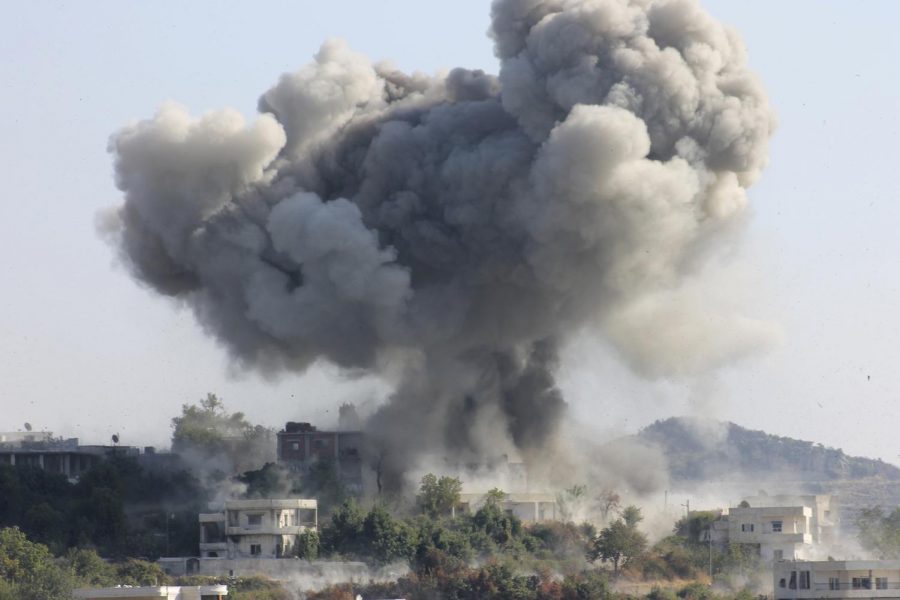The three locations hit by the air strikes were all central to the development of Syria’s chemical weapons program: one research center, one storage facility, and one equipment facility/command post. Currently, no civilian casualties have been confirmed in Syria, but reports state that the strikes dealt a “serious blow” to Syrian military development.
May 21, 2018
On Friday, April 13, the United States (accompanied by allies Great Britain and France) dropped bombs on areas supplying aid to Syria’s chemical weapons program in retaliation toward the Assad regime. At least 42 adults and children were confirmed to have died as a result of the regime’s chemical attacks on Syrian civilians, and the bombing took place as a direct result of the violence.
Toward the beginning of April 2018, reports surfaced that the Assad regime had used chemical weapons to kill more than 85 civilians in the rebel-held city of Douma. These actions, although not confirmed to be true, would be a direct violation of Syria’s signature on the international Chemical Weapons Convention, which prohibits any use or production of chemical weapons.
President Donald Trump stated one week prior to the attack that he intended to place a “big price” on the actions of the Assad regime. After a week of communication with allies and international decision-making, British, French and American planes dropped bombs intended to hit at the “very heart” of Syria’s chemical weapons program.
The three locations hit by the air strikes were all central to the development of Syria’s chemical weapons program: one research center, one storage facility, and one equipment facility/command post. Currently, no civilian casualties have been confirmed in Syria, but reports state that the strikes dealt a “serious blow” to Syrian military development.
It is unclear exactly what will unfold in this international conflict next, but it is certain that the tension is rapidly escalating. Russia has had incidences in the past in which it has violated the guidelines of the Chemical Weapons Convention. Following the bombs dropped in Syria, Russian President Vladimir Putin stated that he viewed the strikes in Syria as an act of aggression, which hints at the possibility of military retaliation. Time will tell if Syria’s attacks on its citizens will continue, or if the United States will continue to offer military support to civilians.
Photo Caption: The three locations hit by the air strikes were all central to the development of Syria’s chemical weapons program: one research center, one storage facility, and one equipment facility/command post. Currently, no civilian casualties have been confirmed in Syria, but reports state that the strikes dealt a “serious blow” to Syrian military development.




